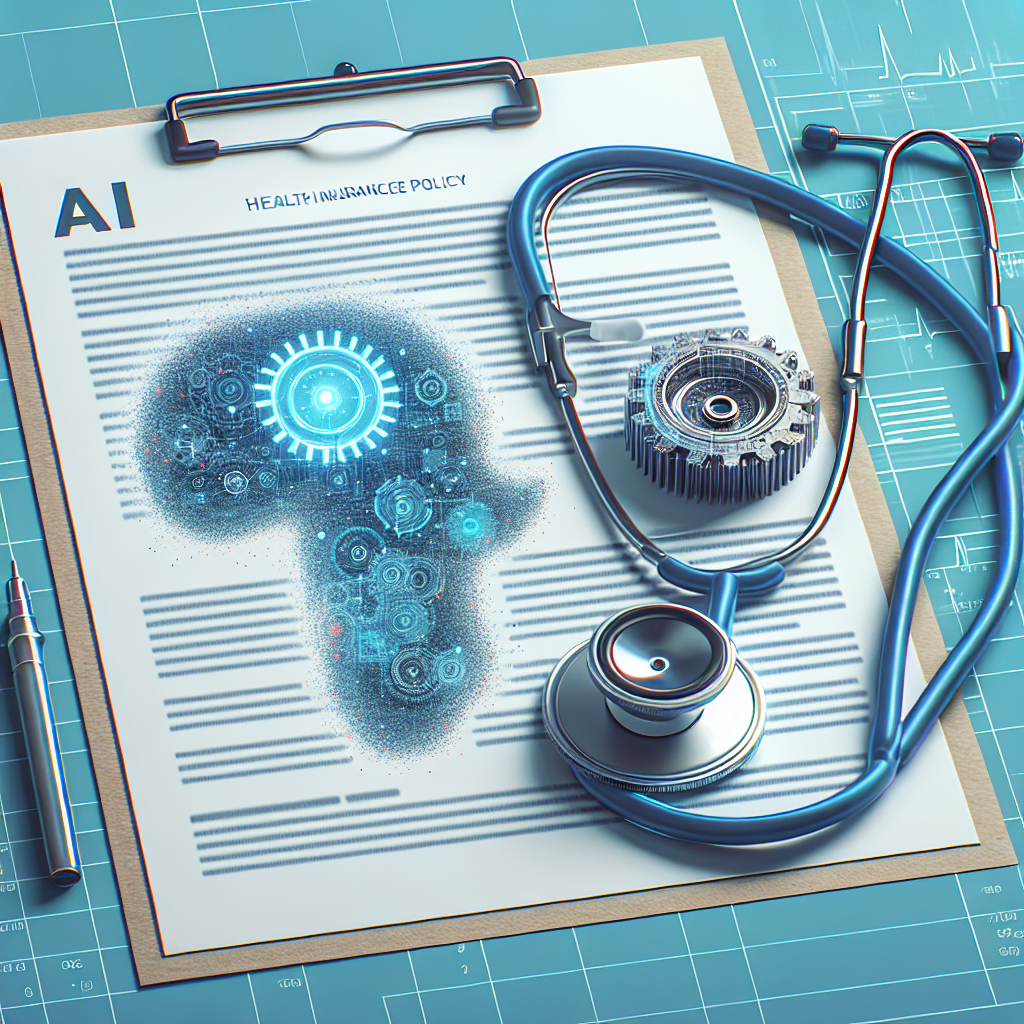AI (Artificial Intelligence) has revolutionized many industries, and the health insurance sector is no exception. The role of AI in health insurance has brought about a significant transformation in how providers deliver services, assess risks, and manage claims. This technology has the potential to streamline processes, improve accuracy, and enhance customer experience. In this article, we will explore the various ways in which AI is being used in the health insurance industry and its impact on the sector.
One of the key ways in which AI is revolutionizing health insurance is through predictive analytics. By analyzing vast amounts of data, AI algorithms can identify patterns and trends that may not be apparent to human analysts. This enables insurers to better assess risks and make more accurate predictions about the likelihood of certain health outcomes. For example, AI can be used to predict which patients are at high risk of developing chronic conditions such as diabetes or heart disease, allowing insurers to intervene early and provide preventive care.
AI is also being used to improve the claims process in health insurance. By automating the claims processing system, insurers can reduce the time it takes to process claims, minimize errors, and improve efficiency. AI-powered systems can analyze medical records, invoices, and other documents to determine the validity of a claim and process payments quickly. This not only benefits insurers by reducing costs but also benefits policyholders by ensuring that claims are processed accurately and in a timely manner.
Another way in which AI is transforming health insurance is through personalized recommendations and interventions. By analyzing individual health data, AI algorithms can provide personalized recommendations for preventative care, treatment options, and lifestyle changes. This can help policyholders make informed decisions about their health and well-being, leading to better outcomes and lower healthcare costs in the long run.
AI is also being used to improve fraud detection in health insurance. By analyzing claims data and identifying patterns of fraudulent behavior, AI algorithms can help insurers detect and prevent fraudulent claims. This not only saves insurers money but also helps to protect policyholders from the impact of fraudulent activities.
Overall, the role of AI in health insurance is to improve efficiency, accuracy, and customer experience. By leveraging the power of AI, insurers can better assess risks, process claims faster, provide personalized recommendations, and detect fraud more effectively. This ultimately benefits both insurers and policyholders by reducing costs, improving outcomes, and enhancing the overall quality of care.
FAQs:
1. How is AI being used in health insurance?
AI is being used in health insurance in various ways, such as predictive analytics, claims processing, personalized recommendations, and fraud detection. By analyzing vast amounts of data, AI algorithms can help insurers assess risks, process claims faster, provide personalized recommendations, and detect fraudulent activities.
2. What are the benefits of AI in health insurance?
The benefits of AI in health insurance include improved efficiency, accuracy, and customer experience. By leveraging the power of AI, insurers can streamline processes, reduce costs, and enhance the quality of care provided to policyholders.
3. How does AI help in predicting health outcomes?
AI algorithms can analyze individual health data to identify patterns and trends that may not be apparent to human analysts. By analyzing this data, AI can help insurers predict the likelihood of certain health outcomes and intervene early to provide preventive care.
4. How does AI improve fraud detection in health insurance?
AI algorithms can analyze claims data and identify patterns of fraudulent behavior to help insurers detect and prevent fraudulent claims. This helps insurers save money and protect policyholders from the impact of fraudulent activities.
5. What are some examples of AI applications in health insurance?
Some examples of AI applications in health insurance include predictive analytics for risk assessment, claims processing automation, personalized recommendations for policyholders, and fraud detection algorithms.
In conclusion, the role of AI in health insurance is transforming the industry by improving efficiency, accuracy, and customer experience. By leveraging the power of AI, insurers can better assess risks, process claims faster, provide personalized recommendations, and detect fraud more effectively. This ultimately benefits both insurers and policyholders by reducing costs, improving outcomes, and enhancing the overall quality of care.

